- Home
- Todd Strasser
Summer of '69 Page 23
Summer of '69 Read online
Page 23
It smells nice and perfumy in here. And there are all these little brown bottles filled with pills.
Wonder what would happen if I took two of each?
One for the money,
Two for the show.
Swallow with vodka,
And away we’ll go.
It’s getting dark. Arno grips Lucas the Unstable’s arm, walking his friend along the foggy sidewalk. Lucas stumbles, the toe of his boot catching on the rough concrete. Feels like he’s wearing ankle weights. It’s bad luck to step on the cracks, but Arno keeps tugging.
This summer the Invasion of the Tent Caterpillars has been worse than ever. In the trees lining the sidewalk their silky nests have grown large, filled with plump, creepy-looking caterpillars. Any leaves that haven’t been gnawed away completely are riddled with holes. (Defoliation. Instead of napalm, why doesn’t the military drop tent caterpillars on Vietnamese jungles?) When Lucas was younger, he used to pretend that the caterpillars and their nests were actually colonies of alien invaders from outer space. The paterfamilias encouraged him to prune the tented branches, douse them in gasoline, and burn them at the curb. Lighting fires was always fun, but the odor of burning alien larvae was sour and yucky.
Maybe Lucas should ask Milton if they could put a nest in the Radarange and see what happens. How cool would it be if the caterpillars blew up? Then Lucas has an idea! He points at the nests and says to Arno, “We should get Mr. Fischer to build a Radarange laser gun with one of his special grips. Then we could blast those suckers right out of the branches.”
“Sure,” Arno grunts.
Lucas the Exterminator wants to slow down and study these wormy invaders from Planet Tent in the Larval Galaxy, but Arno the Annoying is still tugging at him.
“Lay off!” Lucas’s attempt to wrest his arm from Arno’s grasp feels sluggish and weak.
Arno yanks him along.
It occurs to Lucas that they must be going somewhere. “Where are we going?”
“Your house.”
“What? I don’t wanna —” Lucas tries to dig his heels in and nearly topples over.
“No stopping.” Arno tightens his grip and holds him up.
A little while ago, Arno noticed that Lucas’s tablet-painting skills had become noticeably diminished. Most of the violet dye was winding up on Lucas’s fingers and on the newspaper. Arno asked what was going on. Lucas must have told him, but he’s too wrecked to remember for sure.
Through the mist, two people come hurrying along the sidewalk toward them. Lucas forces his eyes to focus. “You called my parents?” He tries to stop again.
“Come on, jerk.” Arno yanks him hard.
“Why are you so angry?”
“What? Jesus Christ, Lucas, when are you gonna grow up and stop feeling sorry for yourself?”
“Wha . . . what’s that mean?”
“You’re such a fuckin’ idiot.”
Faces portraits of concern, Mom and Dad meet them. Lucas is handed over. Why exactly did he take two of every pill in Arno’s parents’ medicine cabinet? The thought of killing himself never entered his mind. Nor did any concern about overdosing.
Blind spots.
Mom slides her arm around Lucas’s waist. It’s a typical summer evening in suburbia. Across the street, Mr. Patrick moves his sprinkler to a patch of front lawn where the grass has turned brown. The Lewandowskys’ station wagon passes filled with kids. The Bakers hustle their totally spaced-out son home.
In the kitchen, Mom’s on the phone. The paterfamilias paces, pretending to care. They don’t get angry at Lucas anymore. They’ve moved on to resignation. At the kitchen table, Lucas’s chin keeps dipping. He keeps jerking his head up. Sure seems cloudy in here. On the phone, Mom’s telling someone that she doesn’t know what Lucas has taken, but for some reason both of his hands have turned violet. “Not violent. Violet.” She hangs up and calls Arno. Now it appears that she’s writing down the names of the medicines in the Exleys’ medicine cabinet.
She’s on the phone again, telling whomever she’s talking to what Lucas ingested. “Never mind his hands. They were fooling around with food coloring.”
Lucas’s head feels heavy. His chin dips. Oh, dear, is that his drool on the table?
Mom hangs up and tells the paterfamilias that too much time has passed to have Lucas’s stomach pumped. That’s good news. Lucas knew a girl at school who had to have her stomach pumped. She said they don’t put the tube down your throat because it makes you gag. Instead, they put it through your nose. It reminded Lucas of how the Egyptians got the brains out of mummies by sticking a hook up the nose and pulling the brain out through the nostrils.
(Did the guy who decided the stomach pump tube should go through the nose think it was a no-brainer? Life without a brain might be an improvement.)
Mom has Lucas’s left arm and the paterfamilias has his right. Hey, look! They’re doing something as a family again! Lucas’s stomach is bloated and sloshing with orange juice. His brain feels bloated and sloshing, too. It appears that whoever Mom spoke to told her that to prevent brain damage, Lucas should drink lots of orange juice and stay awake and moving. (There’s something ironic about the prescribing of orange juice, but it’s difficult to get a handle on at the moment.)
Flanked by his parents, Lucas slowly trudges, his arms and legs having turned to lead. The route takes them from the living room past the dining room and through the den, where the rows of little golden tennis trophy men glower from the shelves. A Roman tribunal giving Lucas the thumbs-down.
Feed him to the lions!
(Considering what Lucas has ingested today, if they do, there’ll be some seriously blitzed kings of the jungle.)
His parents start the loop again. It’s a path they’ve all taken before. As an infant, Alan never crawled. Instead, he skimmed across the floor on his butt. Later, in their search for answers and cures, the Bakers found a doctor who postulated that by not crawling Alan might have missed a critical stage of development. The next day, four sets of red rubber knee pads appeared. That evening the family strapped on the pads and crawled along this very same route.
They crawled each evening for a week. Just another one of those fun Baker family activities! Then Mom and Dad started alternating evenings. Then they both stopped. Did they have unrealistic hopes for quick results? Maybe they got tired of being on their hands and knees. Like so many other household chores, the nightly crawl with Alan was left to Lucas. To keep his brother interested, Lucas made up games. Carrying toy guns, he and Alan crept around furniture, shooting at bad guys. They crawled into the kitchen and barked until Mom put bowls of water on the floor to lap from. Alan eventually lost interest. After that, no amount of cajoling or bribery with candy or comic books worked. He went back to staring at the television.
Now it’s Lucas’s turn. As they escort him through the pharmaceutical haze, his chin keeps dipping and he keeps jerking it up. The frustrated look on Mom’s face reminds him of when he’d bring home those elementary-school report cards peppered with Ns (Needs Improvement) and the occasional U (Unsatisfactory).
Lucas’s feet drag. He’s so weary. His field of vision narrows. Is it getting late? Or are the effects of the drugs he ingested still intensifying? Can’t they just let him lie down and sleep?
What difference will a few million less brain cells make?
“We have to go tonight. Tell Tinsley.”
Arno’s parked at the curb when I get home from work. His parents have just told him that he can’t go to the festival. All day the radio’s been reporting that traffic to Bethel, New York, has been backed up for dozens of miles. A week ago, they were estimating that the crowd might reach forty thousand. Now they’re saying it could be more than double that. The police are warning people not to go. But Arno’s got two thousand hits of Violet Rush to unload, so he’s going no matter what his parents or the police say.
“What about the traffic?” I ask.
“Sammy Steckler used to go t
o camp near White Lake,” Arno says. “He gave me directions for the back way in.”
I’m still disappointed that Milton won’t be there, but right now this festival is what I’m living for. For three entire days, I won’t have to think about army induction physicals, or Robin, or Chris, or my parents getting divorced. For seventy-two blessed hours, the center of the universe will be Crosby, Stills & Nash, the Who, Hendrix, the Jefferson Airplane, and maybe even Dylan himself.
For the past week, the music festival has been the only thing longhairs have talked about. All you have to say is “You going?” You don’t even have to say where. The day after I saw her in the Carvel parking lot, Tinsley called and said she’d changed her mind and wanted to go (but not with Mr. Leather Vest Bare Chest; she confided that he was a possessive chauvinist pig) and asked if I knew anyone with extra tickets. She was thrilled when I told her she could buy Milton’s from him. Like Arno, she’ll be sneaking out of her house tonight. I never thought of this before, but the bigger the abode, the easier it probably is to duck out unnoticed.
And she isn’t the least bit fazed that Barry and I are planning to rendezvous. She’ll be going to the festival with one former paramour. So what if she sees another while she’s there?
I tell Arno that I’ll convey his message to her. I suspect there are a couple of reasons why he’s keen for her to go. He probably thinks that having a pretty, sexy hippie chick around will help create the impression that he’s some sort of big-time dealer. And, as a bonus, maybe he’ll get into her bell-bottoms.
Arno heads to his house. I park the BSA in the garage. As with my purchase of the motorcycle, there’s been no fallout from my spontaneous ingestion of random pills in the Exleys’ bathroom the other night. I was prostrate on the living-room couch the next morning when the paterfamilias woke me for work. My skull felt filled with slowly drying mud. But I got on the BSA and managed to get to the factory without falling off. I’d never tried coffee before, but that seemed like a good day to start.
Now I let myself into the house and see Mom in the backyard on her knees with her pruning shears and trowel, weeding a flower bed. She always gardens in khaki slacks, a blue chambray shirt, and a straw hat, and uses a pair of the red knee pads we got for Alan’s failed crawling project.
I’ve come home late the past few nights. As a result, I haven’t seen much of her since we trudged laps through the house in my pharmacologically induced stupor. When she sees me approaching, she settles back on her haunches. “I think you should start seeing Dr. Hill again.”
So much for thinking there’d be no fallout from my adventure in indiscriminate pill popping. Or is her suggestion due to my lack of direction?
Or is it because of the situation with the paterfamilias? Why have we spent so many years tiptoeing around Dad and his affairs? Why haven’t we ever spoken about them before last week? Did we each think that if it remained undeclared, we were protecting the other? That we could pretend things were okay?
Well, not anymore. “Dad told me he’s thinking about a divorce.”
Mom cocks her head curiously. She switches from her haunches to her butt, sitting cross-legged on the grass. It’s an invitation for me to do the same.
I settle down. “I mean, now that I think about it, it’s kind of weird that I took it so hard. It’s not like I haven’t known forever that he was messing around.”
“You mean you assumed that because we had separate bedrooms?” Mom asks.
“No. I mean I knew. I even met some of them.”
Her eyes widen, then narrow with consternation. “Really? How?” She pulls off her gardening gloves. “Cigarette?”
We light up and I tell her what I remember about the trip to Lake Placid with Hazel. About Sharon in Aspen. About seeing Antonia with Dad in the MG a month ago. And about the other times I suspected he wasn’t working late, or was off on a trip that wasn’t exactly business.
Mom closes her eyes and presses her fingers against her temple. “I’m sorry he put you in that position. That he made you go through that. It’s . . . It’s narcissistic behavior, Lucas. He’s incapable of understanding the effect he has on others.”
She reaches for my hand as if to give comfort. It reminds me of how, when I was younger, I felt so close to her. She was the one I tearfully ran to with a skinned knee or a bruised ego. She was the one I could always count on for tenderness and understanding. Then something changed and I pulled away. That’s what teenagers do, right? They need to prove they can stand on their own. But now I’m feeling something I never expected — how much I’ve missed having her to confide in. “Like I said, Mom, you’d think that after all that, the divorce thing wouldn’t come as a shock.”
Mom smokes like a lady, holding the cigarette daintily between index and middle fingers, turning her head away and blowing the smoke in a puckered stream. “Unless you simply assumed that life would always go on the way it has.”
“Did you?” I ask.
She gazes off. “I’m not sure what I’ve assumed. I’ve just tried to live day to day and focus on you and Alan.”
“Why didn’t you ever call Dad out on it?”
“Oh, I did, darling. Many times. But by then we had you and Alan, and given Alan’s needs, it didn’t seem plausible for us to separate. So we had the extra bedrooms added and more or less agreed to lead independent lives under the same roof.”
“But what kind of life was that for you?”
Mom picks some dirt off her khakis. “I had you and Alan to raise. And I have my friends, and the theater. My books, my gardens.”
But the separate bedrooms. We may be speaking more openly than we have in years, maybe ever, but I’m a long way away from bringing up the topic of a love life. I mean, she’s my mom, for God’s sake. But she and Dad have slept apart for years. Though . . . leading independent lives? Is it possible that Mom had someone on the side? I mean, she never left the slightest clue. But could you blame her if she had had someone?
“What about now?” I ask. “If you get divorced?”
“I’ll be able to stay here with Alan. . . . And you, too, if it comes to that. Have you decided what you’ll do this fall?”
“I guess it depends on what happens with the induction physical out in San Francisco.”
Mom takes a deep drag of her cigarette. “Still no word?”
I shake my head. I’d been hoping to hear from the Mobe before my friends and I headed upstate to the festival. I guess if we get there and I find it’s weighing on me, I can always hit Arno up for one of his Violet Rushes.
I’m a little surprised, but also thankful, that Mom doesn’t ask me if I have a backup strategy for the draft. Chances are she’d be somewhat less than thrilled with Plan B:
This little piggy went to market.
This little piggy stayed home.
This little piggy got chopped off. . . .
Mom presses her cigarette out in the grass and then drops the butt in the wooden basket half-filled with dandelions and crabgrass. I try to picture what her life will be like without Dad — and without me, for that matter. Just her and Alan.
“You’ve started writing again?” I ask.
She looks up. “You heard the typing?”
I nod. “Do you ever regret giving it up?”
“You mean when I was a journalist? No. I wanted to have a family.”
“And now?”
Mom draws herself up. “We make choices. Some we can undo; some we can’t. You find a way to cope.”
Something about her answer makes me feel like it’s a question she’s asked herself many times before. For a few moments we sit together in the warm sunlight beside her bed of flowers. Maybe getting divorced won’t be such a bad thing. She could stay here with Alan, have her gardens, maybe have some kind of a social life as well. Live in the house without having to see Dad or suffer his oppressive presence. As a kid, you can’t imagine how your parents’ getting divorced could be a good thing. But I’m not a kid anymore, a
m I?
In my room, the latest batch of mail is on my desk. My heart skips at the possibility of a letter from Robin. It’s been ten days since I last wrote, saying how much I still love her, vowing to change, and reminding her of the many more good times than bad we’ve had. Since then I’ve repeatedly imagined the letter she might write in return, the one in which she describes coming to her senses and realizing what a ridiculous mistake her dalliance with Samuel has been. The one in which she vows true love forever and asks if I can ever forgive her for briefly straying with the moose rustler. (You bet I can.)
But the only letter on my desk is from Chris.
7/24/69
Loogie,
I don’t think I’m gonna make it. My hands are all swollen and infected from jungle rot. I can’t even grip my K-bar without it sliding loose from pus and blood. I’m worn down to the point where I can’t hardly get up in the morning. And why should I? I ain’t doing no good here. None of us are. We are all just waiting to die.
There are things I ain’t told you before, Loogs, because they’re too horrible but I want you to know because someone back home needs to. It’s the odors, man. Even the TV and newspaper reporters don’t write about it. They know about it because sometimes they’re with us in the middle of the action. Maybe their bosses take it out.
When you get to a village that’s been bombed or burned, you smell it. When you get to the scene of a firefight that happened three days ago, you smell it. It’s the odor of burned human flesh and the odor of rotten flesh, Loogs. Once you’ve smelled it, you never forget.
You see corpses torn to pieces. You find pieces of bodies. Burned bodies. Half eaten bodies. It’s hot and wet and us and the VC can’t always get to the bodies before the bugs and animals do. If a body’s left in the sun, by the second day it stinks horrible. Guys puke left and right.
All the time now I feel like I’m cracking up. Minute by minute torture, waiting to die. When you’re awake it’s terror and when you sleep it’s nightmares. I wake up every morning in a pool of sweat. I’m always shaking. Five more months of this? I can’t take five more days.

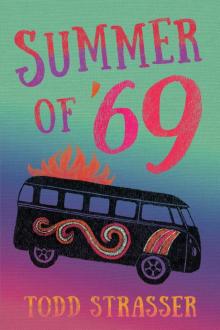 Summer of '69
Summer of '69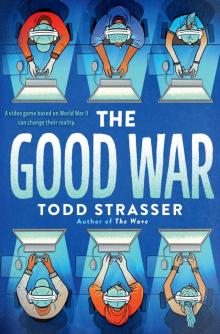 The Good War
The Good War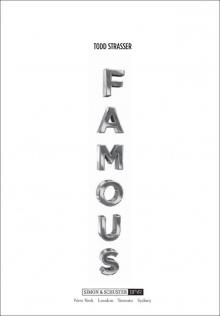 Famous
Famous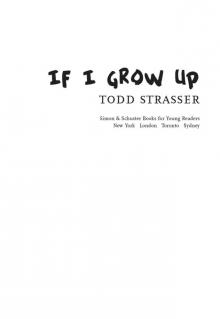 If I Grow Up
If I Grow Up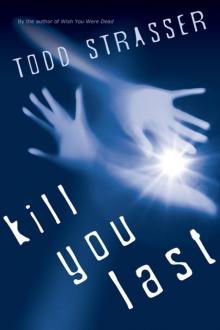 Kill You Last
Kill You Last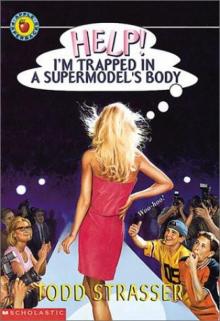 Help! I'm Trapped in a Supermodel's Body
Help! I'm Trapped in a Supermodel's Body Price of Duty
Price of Duty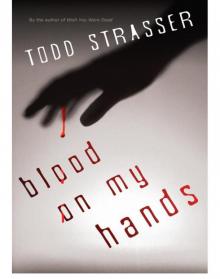 Blood on My Hands
Blood on My Hands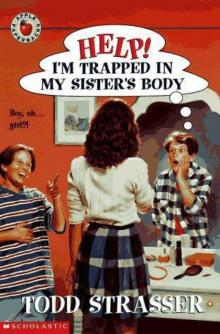 Help! I'm Trapped in My Sister's Body
Help! I'm Trapped in My Sister's Body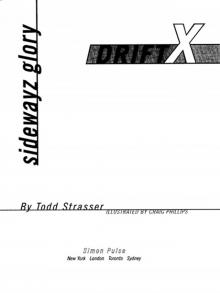 sidewayz glory
sidewayz glory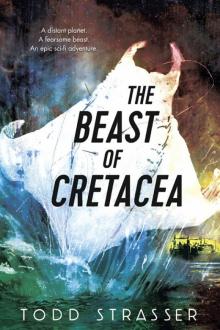 The Beast of Cretacea
The Beast of Cretacea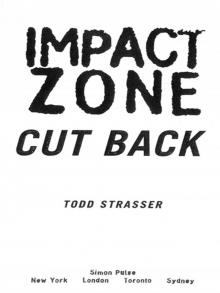 Cut Back
Cut Back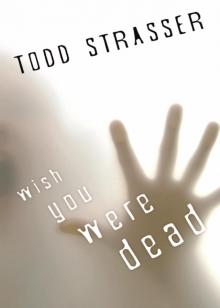 Wish You Were Dead
Wish You Were Dead The Wave
The Wave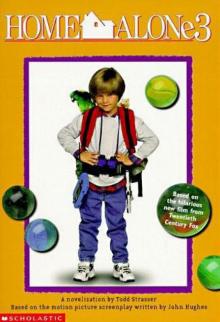 Home Alone 3
Home Alone 3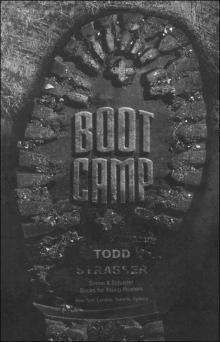 Boot Camp
Boot Camp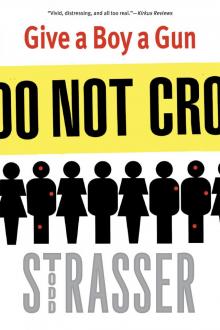 Give a Boy a Gun
Give a Boy a Gun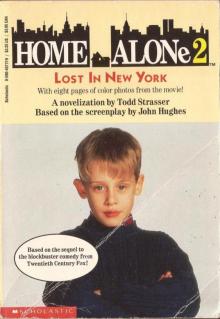 Home Alone 2
Home Alone 2 The Shore
The Shore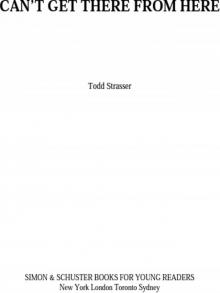 Can't Get There from Here
Can't Get There from Here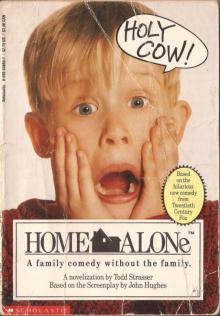 Home Alone
Home Alone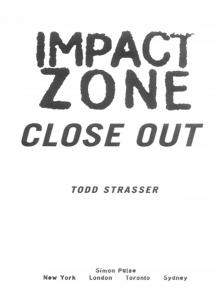 Close Out
Close Out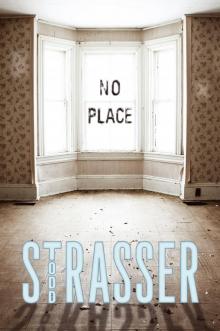 No Place
No Place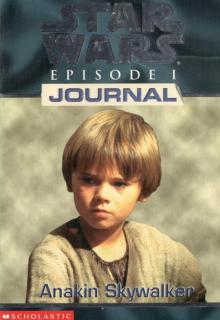 Star Wars - Episode I Journal - Anakin Skywalker
Star Wars - Episode I Journal - Anakin Skywalker